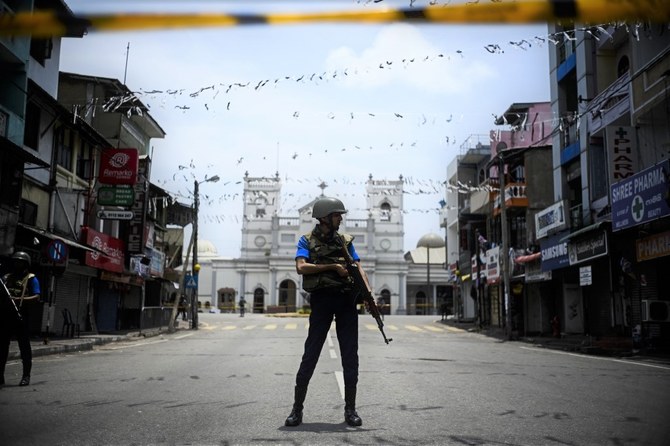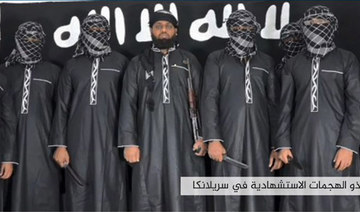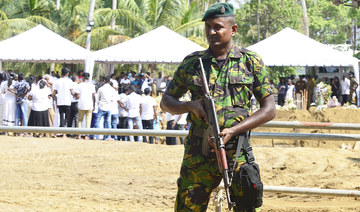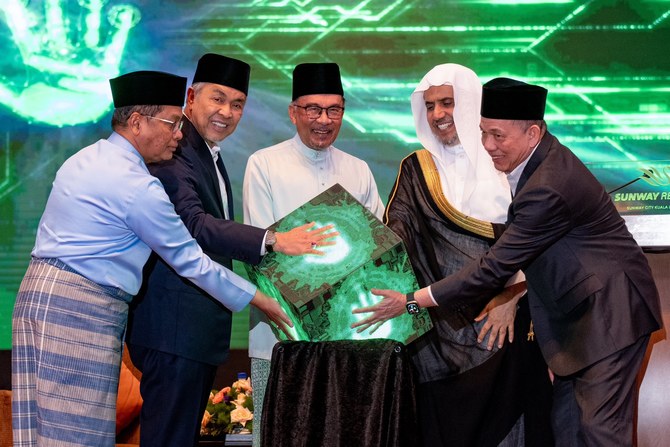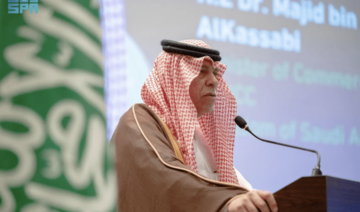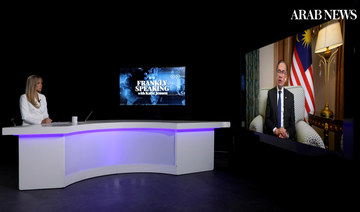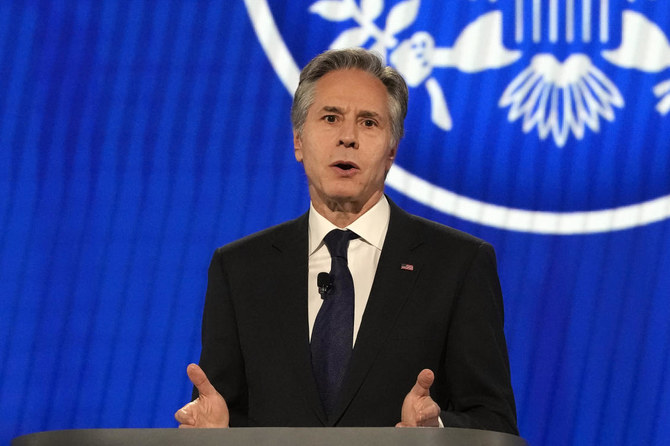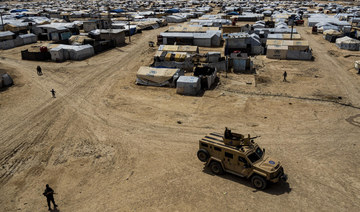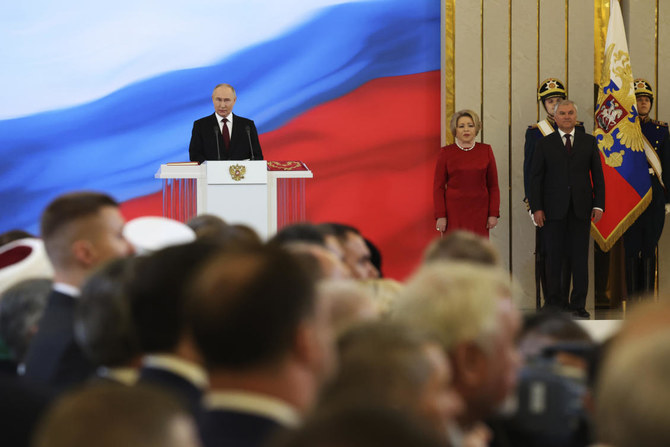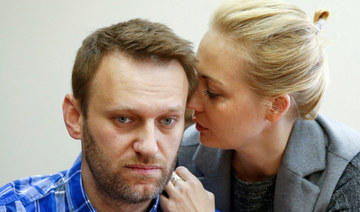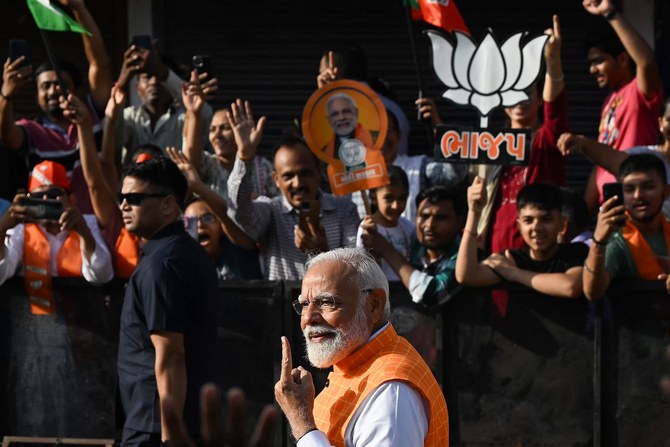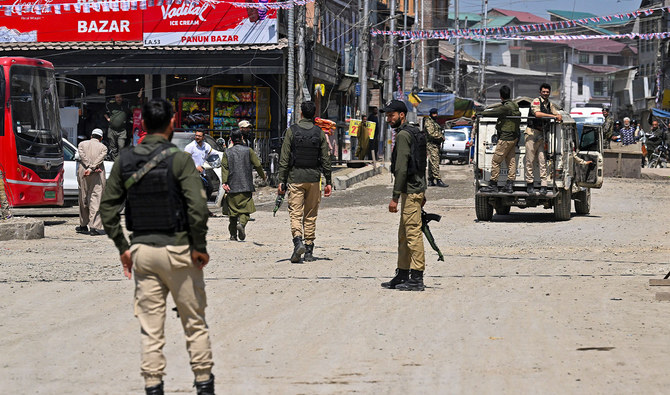COLOMBO: Sri Lankan Defense Secretary Hemasiri Fernando told Reuters on Thursday that he had resigned, taking responsibility for the suicide bomber attacks on the country last Sunday.
He said that while there had been no failure on his own part, he was taking responsibility for failures of some institutions he headed as the secretary of defense.
He said that security agencies were actively responding to intelligence they had about the possibility of attacks before they were launched.
“We were working on that. All those agencies were working on that,” he said.
Sri Lankan authorities on Thursday revised the toll from Easter bombings down to 253, from the previous figure of 359, explaining that some of the badly mutilated bodies had been double-counted.
The health ministry said medical examiners had completed all autopsies by late Thursday, and had concluded that several victims killed in the series of attacks had been counted more than once.
The official toll released by the police was reduced by 106 after the reconciliation of autopsy and DNA reports, the ministry said in a statement.
Meanwhile, several arrests have been made in the ongoing manhunt for the bombers.
Sri Lanka’s former navy chief said the father of two of the Easter suicide bombers has been arrested on suspicion of aiding his sons.
Jayanath Colombage, who now is a counter-terrorism expert at the Pathfinder Foundation, confirmed the arrest to The Associated Press on Thursday.
Sri Lankan police have also arrested three people, seized grenades and other weapons in a raid in Colombo.
All of Sri Lanka’s Catholic churches have been ordered to stay closed and suspend services until security improves after deadly Easter bombings, a senior priest said Thursday.
India has warned Sri Lanka of possible suicide bombings weeks before the attacks, based on “threatening” Daesh-influenced material seized from suspects in the southern state of Tamil Nadu, a source with knowledge of the investigation told AFP Thursday.
A major dispute has erupted in Sri Lanka over why security services did not act over the warnings. The Sri Lankan police chief issued an alert on April 11 but it did not reach a top minister.
Several warnings were made to Sri Lanka, all at least two weeks before the Easter Sunday attacks on three churches and three hotels in which 359 people died, the source said.
India’s evidence, which included videos, was initially seized in raids in 2018 in which seven men were detained in the city of Coimbatore, media reports said.
Earlier, an explosion occurred in a town east of Colombo also on Thursday but there were no casualties, a police spokesman said.
Spokesman Ruwan Gunasekera said police were investigating the blast on empty land behind the magistrate’s court in Pugoda.
“There was an explosion behind the court, we are investigating,” he said, adding it was not a controlled explosion like other blasts in recent days.
As mourners buried the remains of Christian worshippers killed by the Easter Sunday suicide bomb attacks in Sri Lanka, hundreds of Muslim refugees fled Negombo on the country’s west coast where communal tensions have flared in recent days.
At least 359 people perished in the coordinated series of blasts targeting churches and hotels. Church leaders believe the final toll from the attack on St. Sebastian’s Church in Negombo could be close to 200, almost certainly making Negombo the deadliest of the six near-simultaneous attacks.
On Wednesday, hundreds of Pakistani Muslims fled the multi-ethnic port an hour north of the capital, Colombo. Crammed into buses organized by community leaders and police, they left fearing for their safety after threats of revenge from locals.
“Because of the bomb blasts and explosions that have taken place here, the local Sri Lankan people have attacked our houses,” Adnan Ali, a Pakistani Muslim, told Reuters as he prepared to board a bus. “Right now we don’t know where we will go.”
Islamic State has claimed responsibility for the attacks, yet despite Islamic State being a Sunni jihadist group, many of the Muslims fleeing Negombo belong to the Ahmadi community, who had been hounded out of Pakistan years ago after their sect was declared non-Muslim.
The fallout from Sunday’s attacks appears set to render them homeless once more.
Farah Jameel, a Pakistani Ahmadi, said she had been thrown out of her house by her landlord.
“She said ‘get out of here and go wherever you want to go, but don’t live here’,” she told Reuters, gathered with many others at the Ahmadiyya Mosque, waiting for buses to take them to a safe location.
“I have nothing now”
Sri Lanka’s government is in disarray over the failure to prevent the attacks, despite repeated warnings from intelligence sources.
Police have detained an unspecified number of people were detained in western Sri Lanka, the scene of anti-Muslim riots in 2014, in the wake of the attacks, and raids were carried out in neighborhoods around St. Sebastian’s Church.
Police played down the threats to the refugees, but said they have been inundated with calls from locals casting suspicion on Pakistanis in Negombo.
“We have to search houses if people suspect,” said Herath BSS El-Sisila Kumara, the officer in charge at Katara police station, where 35 of the Pakistanis that gathered at the mosque were taken into police custody for their own protection, before being sent to an undisclosed location.
“All the Pakistanis have been sent to safe houses,” he said. “Only they will decide when they come back.”
Two kilometers away, makeshift wooden crosses marked the new graves at the sandy cemetery of St. Sebastian’s Church, as the latest funerals on Wednesday took the number buried there to 40.
Channa Repunjaya, 49, was at home when he heard about the blast at St. Sebastian’s. His wife, Chandralata Dassanaike and nine-year-old daughter Meeranhi both died.
“I felt like committing suicide when I heard that they had died,” he told Reuters by the open graves. “I have nothing now.”
Meeranhi’s grandmother, with her head still bandaged after being wounded in the attack, was held by a relative as the first handfuls of earth were scattered upon her child-sized coffin.
Most of Sri Lanka’s 22 million people are Buddhist, but the Indian Ocean island’s population includes Muslim, Hindu and Christian minorities. Until now, Christians had largely managed to avoid the worst of the island’s conflict and communal tensions.
There were signs of some religious communities pulling together following Sunday’s outrage.
Saffron- and scarlet-robed Buddhist monks from a nearby monastery handed out bottled water to mourners who gathered under a baking afternoon sun.
But the town, which has a long history of sheltering refugees – including those made homeless by a devastating tsunami in 2004 – may struggle to recover from Sunday’s violence, said Father Jude Thomas, one of dozens of Catholic priests who attended Wednesday’s burials.
“Muslims and Catholics lived side by side,” he said. “It was always a peaceful area, but now things have come to the surface we cannot control.”





